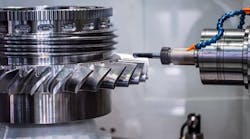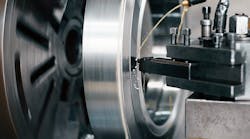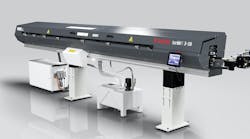Simplifies tool selection. One thread mill can machine all materials up to 58 Rc. This guarantees a safe, highly controllable process, in which a simple modification to the CNC program corrects for material variances. One thread mill can be used for through holes and blind holes.
Produces threads with superior unified form, flank finish and dimensional accuracy. A milled thread satisfies thread acceptability standards according to ANSI B1.3M, for Level 21, 22, and 23.
Eliminates the possibility and consequences of taps breaking. Full bottom threading can be done without modification of the tool.
Pitch diameter can be controlled by CNC machine radius offset. That eliminates the need for special, oversize machine taps that are otherwise required for high-temperature applications that specify a 3BG class tolerance.
Produces optimum concentricity and perpendicularity to the minor diameter. This is a critical thread quality requirement for ring-locked, fluid ports — Rosan Fluid Connection AS1300 — to ensure proper sealing at assembly of fluid fittings.
One thread mill can produce varying thread diameters of the same pitch without affecting tool performance.
Small machines can produce larger threads because they require less spindle torque.
No high-performance lubricants required. That eliminates the need to stop the machine to apply tapping lubricants by hand.
And, thread milling extends tool life over that of machine taps. For example, the average tool life for a machine tap in 6Al4V titanium is 100 to 200 holes. The average tool life for an Emuge thread mill in the same material is 1,800 to 2,000 holes.





